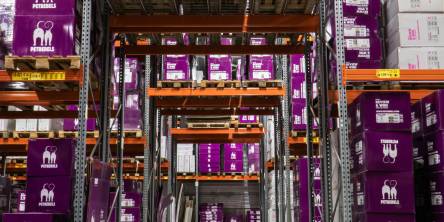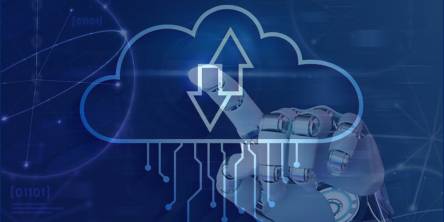IoT Fleet Management: How it Works and Top Advantages

The Internet of Things (IoT) has revolutionized how businesses operate in recent years. With the ability to connect devices and sensors, IoT technology has opened new possibilities for fleet management. IoT has enabled companies to improve the efficiency of their fleet operations by using data to optimize processes and reduce costs.
By leveraging IoT, fleet managers can gain real-time insights into their vehicles' location, performance, and maintenance needs. It helps improve operational efficiency and enables businesses to reduce costs, enhance safety, and provide better customer service.
IoT fleet management systems work by connecting a variety of devices and sensors to vehicles in a fleet. These devices collect data on everything from the vehicle's location and speed to engine performance and fuel consumption. This data is then sent to a central platform, which is analyzed to provide insights that help businesses make informed decisions about their fleet operations. Suffice it to say that the benefits of IoT fleet management are numerous.
Through this blog, I'll explore the benefits of IoT fleet management systems and how they are transforming the transportation industry. Now, let us take a closer look at the primary benefits of IoT fleet management systems:
Advantages of IoT Fleet Management Systems:
- Automation: IoT fleet management systems enable automation by using real-time data and advanced analytics to automate many aspects of fleet management. For example, these systems can automatically assign routes to drivers, optimize routes based on traffic and other factors, and even send alerts when a vehicle requires maintenance. By automating these tasks, businesses can reduce the workload on their fleet managers and ensure that their operations are running as efficiently as possible.
- Preventive maintenance: IoT fleet management systems help with preventative maintenance by using real-time vehicle data to detect potential issues before they become serious problems. These systems can monitor everything from engine performance to tire pressure and send alerts when maintenance is required. By staying ahead of maintenance needs, businesses can reduce downtime and prevent costly repairs. IoT fleet management systems can also help optimize maintenance schedules, ensuring that vehicles are serviced at the most opportune times to minimize disruption to operations.
- Reduced maintenance costs: Such systems also enable companies to cut down maintenance costs for their fleets by allowing them to adopt a proactive approach to maintenance. By monitoring real-time data from vehicles, companies can identify potential issues before they become significant problems. It helps to prevent breakdowns and reduce the need for expensive repairs. IoT fleet management systems can also optimize maintenance schedules, ensuring vehicles are serviced at opportune times and reducing downtime.
- Enhanced safety: IoT fleet management systems can also help realize better levels of security by providing real-time data on the location, speed, and driving behavior of vehicles in a fleet. This data can be used to identify and address unsafe driving practices, such as speeding, harsh braking, and rapid acceleration. IoT fleet management systems can also provide alerts when drivers are fatigued or driving in dangerous conditions, such as bad weather. By improving driver safety, IoT fleet management systems can help reduce accidents, lower insurance costs, and improve the overall reputation of a business.
IoT for fleet management is a game-changing technology that offers numerous benefits to businesses with fleets of vehicles. IoT fleet management systems can help companies optimize their operations, reduce costs, and improve driver safety by providing real-time data and advanced analytics.
From route optimization and preventive maintenance to automation and enhanced security, IoT fleet management systems are a powerful tool for businesses looking to stay ahead of the competition. With the continued development of IoT technology, we can expect to see even more benefits for companies in the coming years.
Similar Articles
For modern businesses to thrive, ensuring the effective management of inventory stands has become vitally important. Inventory management stands as a cornerstone of success. And the emergence of the Internet of Things (IoT) has introduced a new era of connectivity and efficiency across diverse industries.
Do you know what the following e-commerce companies have in common: Amazon, Walmart, eBay, and more? All of these e-commerce companies' apps make use of Java. Java is decidedly among the leading choices of programming language for e-commerce applications because it offers a world of benefits; for example, since Java code can be run on any platform with a Java Virtual Machine (JVM), users of e-commerce apps made with Java can access the said apps on a variety of devices.
Nikola Tesla in 1926, once described what is now called a mobile phone as a telephone that can fit into one's “vest pocket.” As otherworldly as that idea was then, nearly a century later, the reality is even more astounding.
Given the staggeringly high amounts of data being generated worldwide every single day, it ought to come as no surprise that organizations often struggle to pick the right tools to help them effectively harness the potential of all their data.
Managing properties can be a difficult task with the right tools. Property owners must find and use the best property management software. It can be a long and tedious process as there are many options in the property management software market.
In the ever-evolving financial services landscape, industry challenges are numerous and complex. From stringent regulations to rapidly advancing technology and changing consumer expectations, financial institutions face many obstacles.
The human learning capability is a great resource for helping technology evolve and grow, breaking boundaries, and creating new ones. Emulating the ability of humans to learn at a gradual but retentive pace, Machine Learning is the latest power monster that is redefining human-machine interaction.
In the ever-evolving landscape of low-code development, Microsoft's Power Platform stands out as a powerful tool for building custom applications. In today's dynamic digital landscape, creating and managing web pages is no longer the exclusive realm of professional web developers
In the data-driven business world, where information is of utmost priority, organizations are increasingly turning to data warehousing and data marts to harness the power of their data. These data management solutions are pivotal in transforming raw data into actionable insights.









